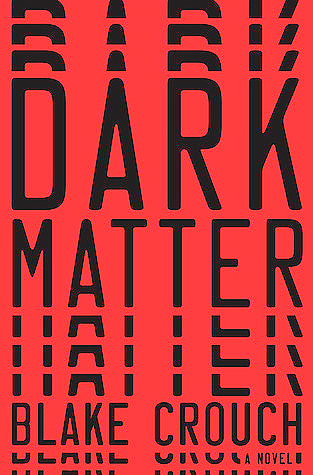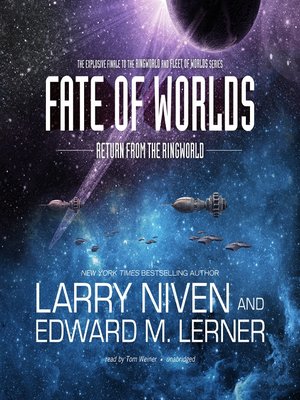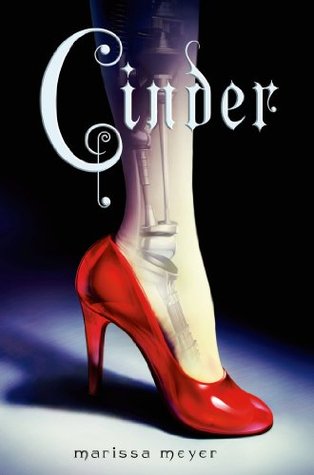A Princess of Mars (Barsoom #1) (John Carter), by Edgar Rice Burroughs, 1912
This is Edgar Rice Burroughs's first novel, and he obviously had some growing pains to go through first. But he got up to speed extremely quickly.
"A Princess of Mars" is imaginative, far exceeding anything else written in science-fiction before it. H. G. Welles wrote allegorical and social-commentary science-fiction, and Verne concentrated on scientific prediction. But Burroughs essentially took an old-fashioned Knight-errant story and tossed it onto Mars. The result: a fastasia of plutonium guns, sword fighting, flying platforms, 15 ft. green aliens, and ferocious four-armed white apes. Outrageous, ridiculous, and oh so much fun!
Burroughs has some difficulty structuring this first novel, and the events do not fit together as well as his later works. Especially in the first fifty pages. Also, some of the stodgy poeticisms of earlier fantasy and sci-fi haven't quite left his pen.
In a few more novels, he would trim his style down even further and revolutionize popular literature. With only his next book, "Tarzan of the Apes" (you've probably heard of it), he would make vast improvements in plotting and characterization.
My rating: ★★☆☆☆ (2 out of 5 stars) - It was okay.
Book description from its jacket:
A Princess of Mars (1917) is a science fantasy novel by Edgar Rice Burroughs, the first of his Barsoom series. Full of swordplay and daring feats, the novel is considered a classic example of 20th century pulp fiction. It is also a seminal instance of the planetary romance, a sub-genre of science fantasy that became highly popular in the decades following its publication. Its early chapters also contain elements of the Western. The story is set on Mars, imagined as a dying planet with a harsh desert environment. This vision of Mars was based on the work of the astronomer Percival Lowell, whose ideas were widely popularized in the late 19th and early 20th centuries. The Barsoom series inspired a number of well-known 20th century science fiction writers, including Jack Vance, Ray Bradbury, Arthur C. Clarke, Robert A. Heinlein, and John Norman. The series was also inspirational for many scientists in the fields of space exploration and the search for extraterrestrial life, including Carl Sagan, who read A Princess of Mars when he was a child.
From Wikipedia:
Plot summary
John Carter, a Confederate veteran of the American Civil War, goes prospecting in Arizona immediately after the war's end. Having struck a rich vein of gold, he runs afoul of the Apaches. While attempting to evade pursuit by hiding in a sacred cave, he is mysteriously transported to Mars, called "Barsoom" by its inhabitants. Carter finds that he has great strength and superhuman agility in this new environment as a result of its lesser gravity and lower atmospheric pressure. He soon falls in with a nomadic tribe of Green Martians, or Tharks, as the planet's warlike, six-limbed, green-skinned inhabitants are known. Thanks to his strength and martial prowess, Carter rises to a high position in the tribe and earns the respect and eventually the friendship of Tars Tarkas, one of the Thark chiefs.
The Tharks subsequently capture Dejah Thoris, Princess of Helium, a member of the humanoid red Martian race. The red Martians inhabit a loose network of city-states and control the desert planet's canals, along which its agriculture is concentrated. Carter rescues Dejah Thoris from the green men in a bid to return her to her people.
Subsequently Carter becomes embroiled in the political affairs of both the red and green Martians in his efforts to safeguard Dejah Thoris, eventually leading a horde of Tharks against the city-state of Zodanga, the historic enemy of Helium. Winning Dejah Thoris' heart, he becomes Prince of Helium, and the two live happily together for nine years. However, the sudden breakdown of the Atmosphere Plant that sustains the planet's waning air supply endangers all life on Barsoom. In a desperate attempt to save the planet's inhabitants, Carter uses a secret telepathic code to enter the factory, bringing an engineer along who can restore its functionality. Carter then succumbs to asphyxiation, only to awaken back on Earth, left to wonder what has become of Barsoom and his beloved.
Characters
John Carter: An Earthman from Virginia with a mysterious background, Captain John Carter fought in the American Civil War on the Confederate side.[1] At the war's end he goes prospecting for gold in Arizona. After various adventures, including an attack by Apaches, he is miraculously transported to Mars. During his nine years on that planet he effectively disappears from Earth and is believed dead, but he re-emerges in New York in 1876, settling in a house overlooking the Hudson River. He apparently dies again in 1886, leaving instructions for a fictionalized Burroughs, who refers to Carter as his Uncle Jack, to entomb him in a crypt. He also leaves Burroughs with the manuscript of A Princess of Mars, with instructions not to publish it for another 21 years.[2] John Carter states that he has no memory before the age of 30 and has always appeared the same, without aging. He is adept at strategy, horsemanship, and all weapons, including firearms and swords. He is 6'2" tall, clean-shaven, with close-cropped black hair and steel gray eyes.[1] He is honorable, courageous, and eternally optimistic, even in the face of certain death.[3] From the Green Martians he received the name "Dotar Sojat," after the first two green warriors whom he slew after his advent on Barsoom. He sometimes uses this name as an alias in later books of the Martian series.
Dejah Thoris: A red Martian princess of Helium, she is courageous, resolute, and frequently in mortal danger or under threat of dishonor by the lustful designs of a succession of villains. She is the daughter of Mors Kajak, Jed (chieftain) of Lesser Helium, and the granddaughter of Tardos Mors, Jeddak (overlord or high king) of Helium. As such she is highly aristocratic and fiercely proud of her heritage.[4] Introduced early in the novel, she immediately becomes the love interest of John Carter.[5] As a central character in the first three Barsoom novels, her frequent capture by various enemies, and subsequent pursuit by John Carter, is a constant motivating element in their plots.
Tars Tarkas: A fierce Green Martian warrior from the tribe of Thark, he is unusual among his race for his ability to experience tender emotions such as friendship and love. His emotional development stems from a forbidden love affair in his youth, when he secretly began a partnership with a Green Martian woman named Gozava. He befriends John Carter and later fights at his side. Carter helps him become Jeddak of Thark and negotiates an alliance between the Green Martians and the city-state of Helium, which results in the destruction of Helium's enemy, Zodanga.[2] Tars Tarkas more than once displays an ironic sense of humor; he mocks John Carter's perception of himself as "a cruel green warrior" while fighting beside him, and in The Gods of Mars he comments on the disappointment of Barsoomian hopes for the afterlife.
Sola: Daughter of Tars Tarkas and a friend of John Carter, she teaches him the Barsoomian language and the history of her race, as well as the secret of her own parentage. She appears in the immediate sequels to A Princess of Mars, but has no role in later books of the series.
Sarkoja: A Green Martian woman whose intrigues resulted in the death of Gozava and who schemes against John Carter. After Carter tells Tars Tarkas about her role in Gozava's death, she is frightened into a self-imposed exile and never heard from again.
Kantos Kan: A warrior of Helium who escapes a Warhoon prison with John Carter. By the beginning of the second book, Kantos Kan is the chief commander of Helium's navy.








.jpg/200px-Pines-Blake_Crouch_(2012).jpg)

